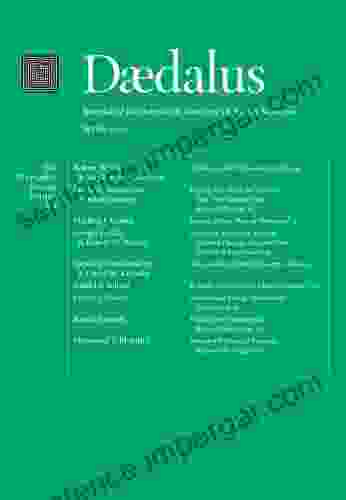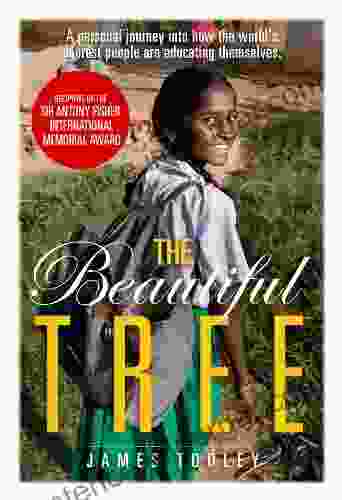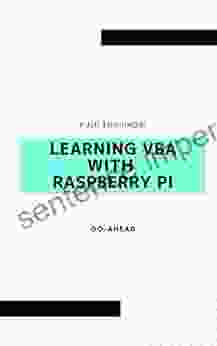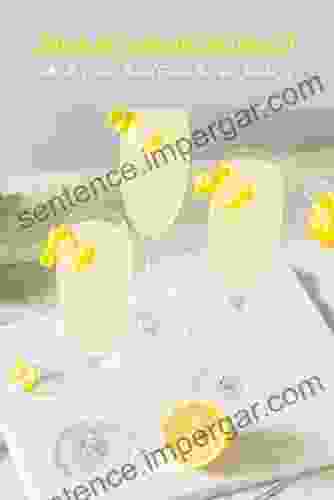A Personal Journey Into How the World's Poorest People Are Educating Themselves

In a world where access to quality education remains a distant dream for millions, the story of how the world's poorest people are educating themselves is one that deserves to be told. It is a story of resilience, innovation, and the indomitable human spirit.
My journey into this fascinating world began in a small village in rural India. Here, I met a group of young people who had never stepped foot inside a traditional classroom. Yet, their thirst for knowledge was unquenchable. They had formed their own makeshift learning center, where they gathered each day to share their meager resources and teach each other everything they knew.
As I spent more time with these inspiring individuals, I realized that their story was not an isolated one. All over the world, the poorest of the poor are finding innovative ways to educate themselves. They are using technology, community resources, and their own ingenuity to overcome the barriers that stand in their way.
4.6 out of 5
| Language | : | English |
| File size | : | 1397 KB |
| Text-to-Speech | : | Enabled |
| Screen Reader | : | Supported |
| Enhanced typesetting | : | Enabled |
| Word Wise | : | Enabled |
| Print length | : | 318 pages |
In the slums of Nairobi, Kenya, I met a young woman named Mary who had started a community library out of her tiny shack. With donated books and a few donated laptops, she had created a safe space where children could come to read and learn. In a refugee camp in Jordan, I met a group of Syrian refugees who had started a school under a tent. They had no textbooks or desks, but they had a passion for learning that was contagious.
The stories I heard were as diverse as the people I met. But they all shared a common thread: the belief that education is a fundamental human right, no matter how poor or marginalized you are. This belief has fueled their determination to find ways to learn, even when the odds are stacked against them.
The challenges faced by the world's poorest people are immense. Poverty, illiteracy, and discrimination are just a few of the obstacles they must overcome. But despite these challenges, they are making progress. They are building schools, starting libraries, and using technology to connect with the world.
Their story is a reminder that education is not a luxury reserved for the privileged few. It is a basic human need that can transform lives and empower people to break the cycle of poverty. As we celebrate International Literacy Day, let us be inspired by their example and work together to ensure that everyone, regardless of their background, has the opportunity to learn and reach their full potential.
Here are some of the specific ways that the world's poorest people are educating themselves:
- Using technology: In many developing countries, mobile phones and tablets are becoming increasingly affordable. This has given the world's poorest people access to a wealth of educational resources that were previously out of reach. There are now numerous apps and websites that offer free educational content, from basic literacy to university-level courses.
- Starting community learning centers: In communities where there is no access to formal education, people are starting their own makeshift learning centers. These centers often provide a safe and supportive space for people to learn and share knowledge. They may offer classes in basic literacy, math, and other subjects.
- Using community resources: In some communities, there are local organizations that offer educational programs. These programs may provide tutoring, mentoring, or other support services. They can be a valuable resource for people who want to learn but don't have the means to pay for formal education.
- Teaching each other: In many cases, the world's poorest people are teaching each other. They may share their knowledge through informal gatherings, or they may form more structured learning groups. This type of peer-to-peer learning can be very effective, as it allows people to learn from each other in a supportive and collaborative environment.
The stories of the world's poorest people are a testament to the power of education. They show that even in the most challenging circumstances, people can find ways to learn and improve their lives. Their example should inspire us all to work towards a world where everyone has the opportunity to reach their full potential.
Here are some ways that you can help the world's poorest people educate themselves:
- Donate to organizations that support education in developing countries. There are many reputable organizations that work to provide educational opportunities to the world's poorest people. Your donation can help to fund scholarships, build schools, and provide teachers with training and resources.
- Volunteer your time to teach or tutor in developing countries. If you have the time and skills, you can volunteer to teach or tutor in developing countries. This is a great way to make a direct impact on the lives of the world's poorest people.
- Raise awareness of the issue of educational inequality. You can help to raise awareness of the issue of educational inequality by talking to your friends and family, writing letters to your elected officials, and sharing information about the world's poorest people on social media.
- Support fair trade products and businesses. Buying fair trade products and supporting fair trade businesses helps to create a more just and equitable world. When you buy fair trade products, you are supporting farmers and workers in developing countries who are working to improve their lives and the lives of their families.
By taking action to support education in developing countries, you can help to create a more just and equitable world. Education is the key to unlocking human potential and breaking the cycle of poverty. Let us all work together to ensure that everyone, regardless of their background, has the opportunity to learn and reach their full potential.
Additional resources:
- The Global Partnership for Education
- UNESCO's Education for All Global Monitoring Report
- The World Bank's Education for Global Development
Images
- Image of a group of children learning in a makeshift classroom in India
- Image of a young woman using a mobile phone to access educational content
- Image of a group of people learning in a community learning center in Kenya
- Image of a group of Syrian refugee children learning in a tent school in Jordan
Alt attributes
- Image 1: A group of children learning in a makeshift classroom in India.
- Image 2: A young woman using a mobile phone to access educational content.
- Image 3: A group of people learning in a community learning center in Kenya.
- Image 4: A group of Syrian refugee children learning in a tent school in Jordan.
4.6 out of 5
| Language | : | English |
| File size | : | 1397 KB |
| Text-to-Speech | : | Enabled |
| Screen Reader | : | Supported |
| Enhanced typesetting | : | Enabled |
| Word Wise | : | Enabled |
| Print length | : | 318 pages |
Do you want to contribute by writing guest posts on this blog?
Please contact us and send us a resume of previous articles that you have written.
 Book
Book Novel
Novel Page
Page Chapter
Chapter Text
Text Story
Story Genre
Genre Reader
Reader Library
Library Paperback
Paperback E-book
E-book Magazine
Magazine Newspaper
Newspaper Paragraph
Paragraph Sentence
Sentence Bookmark
Bookmark Shelf
Shelf Glossary
Glossary Bibliography
Bibliography Foreword
Foreword Preface
Preface Synopsis
Synopsis Annotation
Annotation Footnote
Footnote Manuscript
Manuscript Scroll
Scroll Codex
Codex Tome
Tome Bestseller
Bestseller Classics
Classics Library card
Library card Narrative
Narrative Biography
Biography Autobiography
Autobiography Memoir
Memoir Reference
Reference Encyclopedia
Encyclopedia James A Gross
James A Gross Jason Timothy
Jason Timothy Jannette Tomamao
Jannette Tomamao Jeannette Lofas
Jeannette Lofas Jason G Miles
Jason G Miles Jeff A Menges
Jeff A Menges James D Charlet
James D Charlet Janie Mcgee
Janie Mcgee James Fowler
James Fowler Jason Rosander
Jason Rosander Janet Staiger
Janet Staiger James Baikie
James Baikie Jane Donawerth
Jane Donawerth Janet Sayers
Janet Sayers Jeff Mclinden
Jeff Mclinden James Geary
James Geary James A Hessler
James A Hessler Jan Tregidgo
Jan Tregidgo James W Grice
James W Grice Janae B Weinhold Phd
Janae B Weinhold Phd
Light bulbAdvertise smarter! Our strategic ad space ensures maximum exposure. Reserve your spot today!

 Cameron ReedFIFA 15 Trading Secrets Guide: The Ultimate Guide to Making Millions in FIFA...
Cameron ReedFIFA 15 Trading Secrets Guide: The Ultimate Guide to Making Millions in FIFA...
 Blake KennedyUnveiling the Alternative Energy Future: A Journey into Daedalus 141 Spring...
Blake KennedyUnveiling the Alternative Energy Future: A Journey into Daedalus 141 Spring... Floyd PowellFollow ·8.8k
Floyd PowellFollow ·8.8k Desmond FosterFollow ·16k
Desmond FosterFollow ·16k Chandler WardFollow ·2.8k
Chandler WardFollow ·2.8k Rex HayesFollow ·5.6k
Rex HayesFollow ·5.6k George BellFollow ·6.4k
George BellFollow ·6.4k Anthony WellsFollow ·19k
Anthony WellsFollow ·19k Drew BellFollow ·11.5k
Drew BellFollow ·11.5k Dean CoxFollow ·6.4k
Dean CoxFollow ·6.4k

 Jacob Foster
Jacob FosterPrinciples and Persons: The Legacy of Derek Parfit
Derek Parfit's 1984 book,...

 Leo Mitchell
Leo MitchellPartners For Life: Raise Support For Your Missionary Work...
Are you a missionary or ministry leader...

 Blake Kennedy
Blake KennedyOn Desperate Ground: A Gripping Account of World War II's...
Hampton Sides' "On...

 Duane Kelly
Duane KellyCriminal Minds Sociopaths Serial Killers And Other...
In the realm of criminology,...

 Craig Blair
Craig BlairHome Repair: The Ultimate Guide to Fix, Maintain, and...
Welcome to the...

 Elmer Powell
Elmer PowellThe Organic Grower Guide to Mycorrhizae Science for...
Unlock the Secrets of Soil...
4.6 out of 5
| Language | : | English |
| File size | : | 1397 KB |
| Text-to-Speech | : | Enabled |
| Screen Reader | : | Supported |
| Enhanced typesetting | : | Enabled |
| Word Wise | : | Enabled |
| Print length | : | 318 pages |








